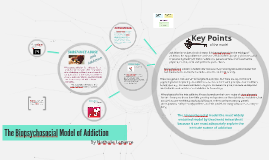However, numerous lines of proof link a sleep phase referred to as Rapid Eye Movement. After you drop off to sleep, your brain goes into three gradually deeper phases of non-REM sleep, which is mostly dreamless. After about 90 minutes, it goes into Rapid Eye Movement sleep, which is when most dreaming takes place. Typically, the brain will cycle through these stages numerous times in the course of a night's sleep, with the Rapid Eye Movement phases getting gradually longer.
Research study recommends that we process emotional memories during healthy Rapid Eye Movement, helping us "unlearn" frightening or unpleasant experiences. Els van der Helm and Matthew Walker, sleep scientists at the University of California, Berkeley, have actually speculated that the regular pattern of psychological processing that happens during REM sleep breaks down in people with anxiety.
Surprisingly, in some individuals, total sleep deprivation can quickly lift anxiety, though just temporarily. Van der Helm and Walker believe that this might operate in similar method as the antidepressants by denying the brain of this dysfunctional type of Rapid Eye Movement sleep. Issues with Rapid Eye Movement likewise appear to play a function in post-traumatic stress condition (PTSD).
A review of research study suggests that the drug prazosin, which medical professionals generally recommend for high blood pressure, can alleviate the problems of military battle veterans with PTSD.Noradrenaline suppresses REM sleep. By reducing the hormone's concentration in the brains of veterans with PTSD, prazosin might promote more reliable REM sleep, which then erases the emotional label that is causing their recurrent problems.
As well as evaluating the occurrence and nature of sleep difficulties in individuals with these conditions, the researchers will randomly appoint participants with sleep issues to get either their usual care or treatment at a sleep clinic. Explaining their forthcoming research study in the journal BMC Psychiatry, the psychiatrists write:" In spite of a high event of sleep conditions and established unfavorable results on mental health, little attention is paid to sleep issues in mental health care.
Indicators on How Stigma Affects Mental Health You Should Know
Sleep is as important to our health as consuming, drinking and breathing. It enables our bodies to repair themselves and our brains to combine our memories and procedure details. Poor sleep is linked to physical issues such as a weakened immune system and psychological health issues such as stress and anxiety and anxiety.
This consists of simple ways to enhance your 'sleep hygiene', such as adjusting the light, sound and temperature in the bedroom and changing your eating, drinking and exercise regimens, recommendations which can also be found in Sleep Well, our handy pocket guide to better sleep. The report likewise includes guidance on how Cognitive Behavioural Therapy can be more effective in helping people with long-lasting insomnia than medication, and how NHS policy might be changed to show this reality.
Have you ever gone to bed worried about a crucial, early morning meeting? You understand you need to be well rested in order to put your best foot forward, so you spend the entire night lying broad awake believing about how you truly need to go to sleep? It's something we have actually all skilled.
Handling the rare restless night is something, but for many individuals, uneasyness isn't an isolated event. In reality, it's estimated that 40 million Americans have a chronic sleep disorder. And with sleep and psychological health being so carefully related, there's an indisputable connection happening. 50% to 80% of individuals looking for psychological healthcare likewise experience issues with sleep, and those who are experiencing depression, anxiety, or ADHD are especially likely to face sleep too.
Nevertheless, more recent research study has suggested that this might not be the whole story. These research studies have actually found that sleep disturbances may in fact be working as a trigger, raising your threat of developing a mental health condition. While researchers aren't exactly sure why this is, they have found some connections.
How Foster Care Affects Mental Health - An Overview
Research studies have actually revealed that Rapid Eye Movement helps our brains enhance learning skills, memory, and general emotional health. When this kind of sleep is disrupted, our neurotransmitters and stress hormonal agents are also disrupted. Therefore, this interruption can worsen any already-present signs of psychological health conditions and vice versa. Various studies have actually shown that as much as 90% of adults and children with anxiety also experience some form of sleep problem.
One longitudinal study found that participants with sleeping disorders were 4 times more likely to develop anxiety than their non-insomniac equivalents. Several other research studies have taken a look at the relationship between sleep and anxiety in youths. Remarkably, they discovered that sleep issues started before their anxiety did. It's estimated that over half of grownups struggling with generalized anxiety condition also have sleep concerns.
Being nervous can make it tough to fall or stay asleep, which can then trigger stress and anxiety about losing sleep. One study found that over half of people affected with both sleep problems and stress and anxiety established anxiety specific to going to sleep during the night. Much like depression and sleep, losing quality rest can magnify the symptoms of anxiety.

There are fewer research studies on the impacts of ADHD on sleep, however numerous adults and children with ADHD will experience comparable sleep disturbances. Numerous patients will frequently experience "perverse sleep" being awake when it's time for bed and being tired when it's time to be awake. Individuals with ADHD will often report problems with going to sleep, staying asleep, and getting deep, relaxing sleep.
Recognizing the power of sleep and its relationship with psychological health is more important than ever in today's busy, uneasy culture. Comprehending how one affects the other not only assists in getting the most accurate diagnoses, however likewise help in improved treatments for both conditions. To get more information about Neurocore's med-free sleep program, offer us a call at 800.600.4096.
The Buzz on How Ibs Affects Your Mental Health
Do you frequently work longer in the night? Do you invest a lot of time partying with good friends into the early hours? Or do you have children who frequently keep you awake at night? With work, household and other life commitments, much of us just do not get the recommended seven or 8 hours of sleep.
It can be easy to dismiss sleep as not being essential in keeping a psychologically healthy lifestyle but are we missing a technique? How crucial is an excellent night's sleep to how we operate mentally? of explains why sleep is so important to our, and what we can do to help improve our sleeping habits - how mental health affects the brain.

The outcomes of one research study (Yoo, Gujjar et al (2007 ). A deficit in the capability to form new human memories without sleep. Nature Neuroscience, 10( 3 ), 385-392) https://cocaine-addiction-symptoms-of-drug-abuse.drug-rehab-fl-resource.com/ show that a night of restful sleep might 'reset' brain reactivity in order to get ready for psychological difficulties the next day. Sleep has an essential restorative function in 'charging' the brain at the end of every day, similar to we need to charge a mobile phone battery after extended usage.
Continuous bad sleep can be a substantial risk element for the advancement of major depressive disorder. The threat of feeling and/or (in addition to getting worse existing anxiety and depression) increases with the severity of, and so it is important to identify and arrange out sleep issues as quickly as they are recognized.